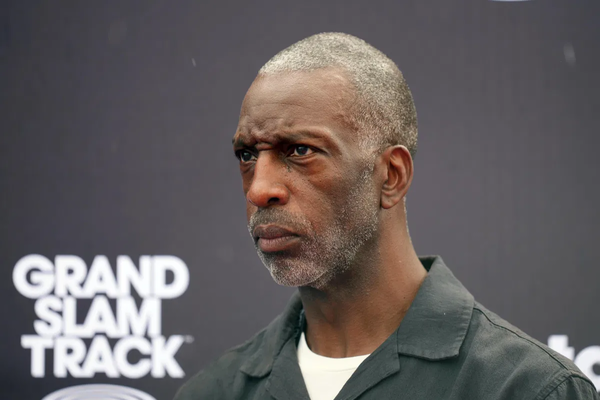
Imago
Credits: IMAGO

Imago
Credits: IMAGO
When Michael Johnson launched Grand Slam Track, it was positioned as a bold reinvention of the sport. By mid-2025, that vision had collapsed under nearly $19 million in unpaid dues to athletes, vendors, and staff. After missing its own self-imposed deadline, the organization has now issued letters demanding that vendors accept just 50% of their payments, which has caught some completely off guard, accusing the league of taking advantage of their situation.
Watch What’s Trending Now!
The administration of the league has recently approved letters stating that the companies that provided services to Grand Slam Track will have to accept an offer of 50 percent of the owed monies for invoices through to the end of October 2025. The letter further asserts that any failure to accept this clause would mean that the league would have to go completely bankrupt. This message was a chagrin to the vendors, who were expecting full payments from Michael Johnson.
As per the recent updates, the vendors will have to accept that offer by December 5th under the proposed new plan. Matt Gordon, the owner and principal designer of Eastern Lighting Design – a company that worked for the GST – while in conversation with ‘The Athletic’, revealed that under no circumstance was he made aware of any financial difficulties that the league was facing at that time.
“It really wasn’t until the plug was pulled on LA that we were aware that there were problems. It’s extremely unfortunate that Grand Slam Track pulled in such a world-class group of production entities, only to have things unfold this way. It’s likely that without the high level of production vendors involved, they would not have been able to pull off such a polished event in the limited amount of time. Ultimately, I feel, at least speaking for Eastern Lighting Design, that we were taken advantage of.”

Imago
Credits: IMAGO
Vendors who spoke to The Athletic were split. Some in a stronger financial position, are ready to absorb the losses. Others, however, are preparing to take legal action. Several argued it would be unfair for Michael Johnson’s Grand Slam Track to move ahead with a new season while last year’s vendors and athletes are still struggling to get paid. A few even warned that accepting the 50% payout could push their businesses into a drastically weakened position.
It is worth noting that the letter to vendors was sent shortly after reports surfaced that Grand Slam Track had received emergency financial support from its previous investors. The infusion was significant, roughly enough to cover half of what the league owed its athletes and vendors.
“It’s a huge step forward and a credit to GST in fulfilling their promise to pay the athletes,” said Ray Flynn, who represents Josh Kerr and Cole Hocker.
Speaking of investors, most of Grand Slam Track’s active backers actually held an option, but not an obligation, to inject funds into the league.
Michael Johnson’s GST received half of what the investors promised
Last year, back in September, Grand Slam Track, through a press release, announced that it had secured more than $30 million in funding from its investors and strategic partners. This simple release restored confidence among the athletes as well as the vendors, prompting many to work with the league. However, the reality was much different from this.
An investigation by The Athletic revealed that the league had actually secured just $13 million from its pool of investors—far less than the publicly touted figure. The lead backer was Winners Alliance, chaired by billionaire Bill Ackman. Further reporting showed that the investors held an option, but no binding obligation, to fund the league.
While many had initially pledged support, the league’s underwhelming performance at its opening meet in Jamaica led most of them to pull back from their commitments. After receiving emergency support from a few remaining investors in September, the league announced in early October that it would pay off only half of its outstanding dues.
Michael Johnson now faces challenges in pulling his league back from the brink of bankruptcy and in salvaging its reputation. Vendors, meanwhile, have until December 5 to accept half of what they’re owed. What comes next for Grand Slam Track? Time will tell.
